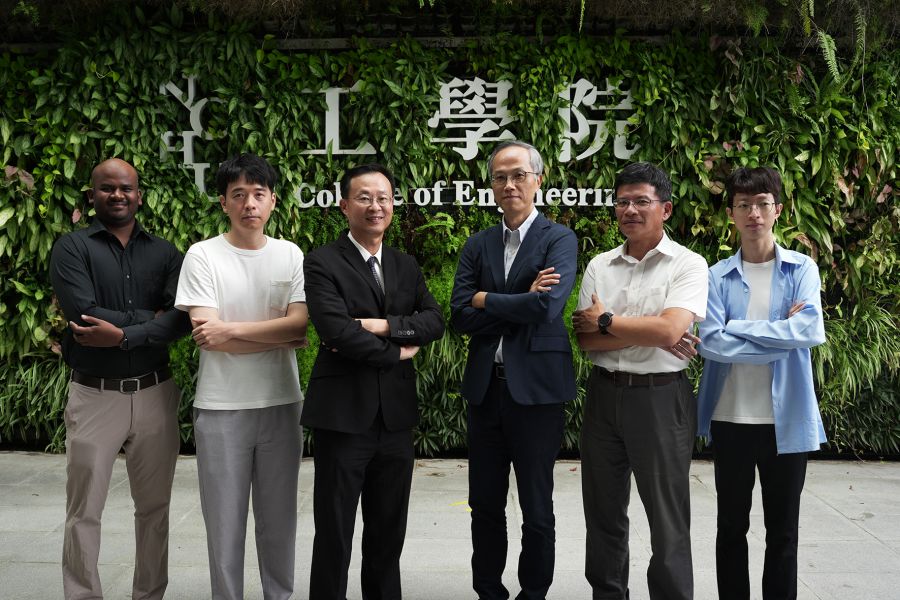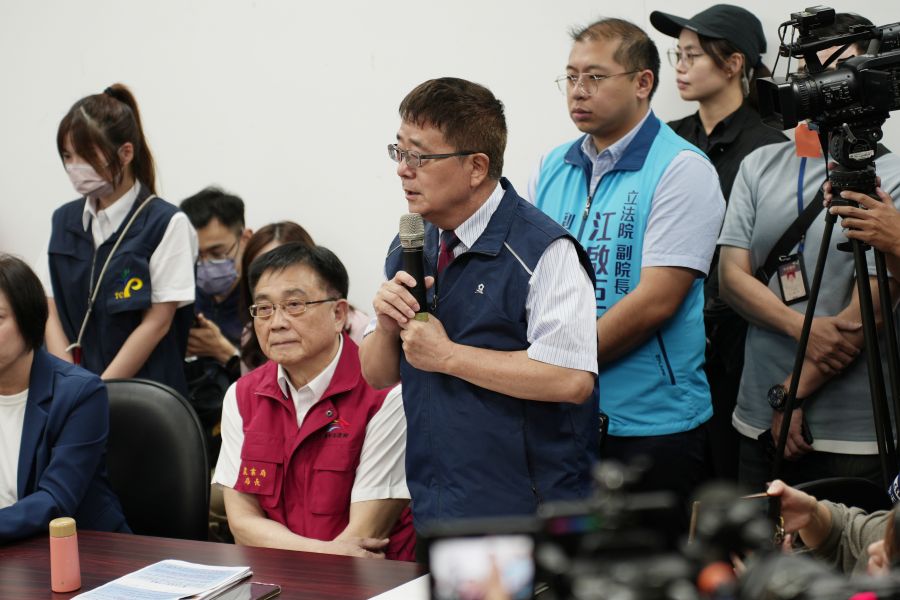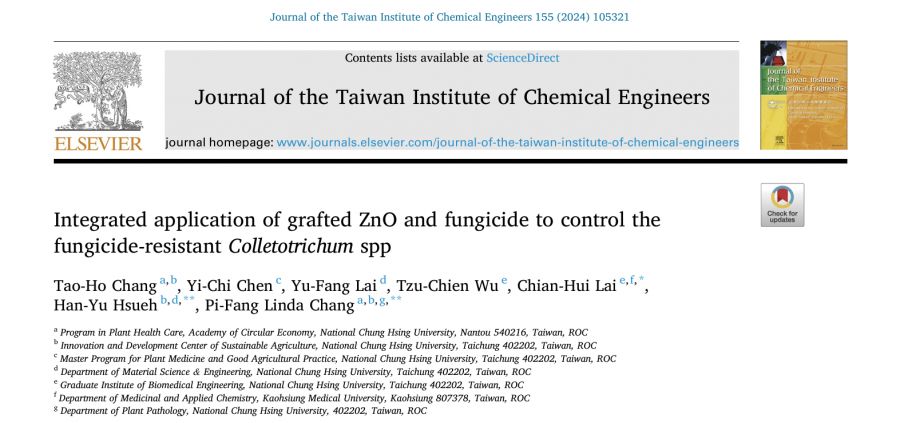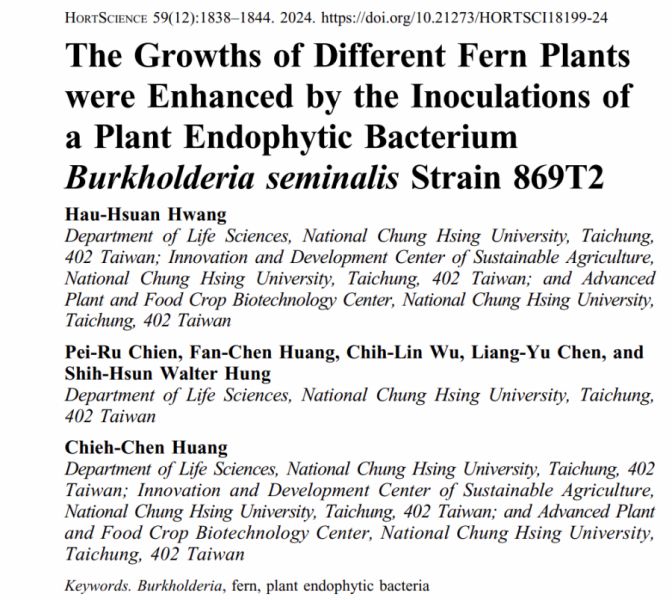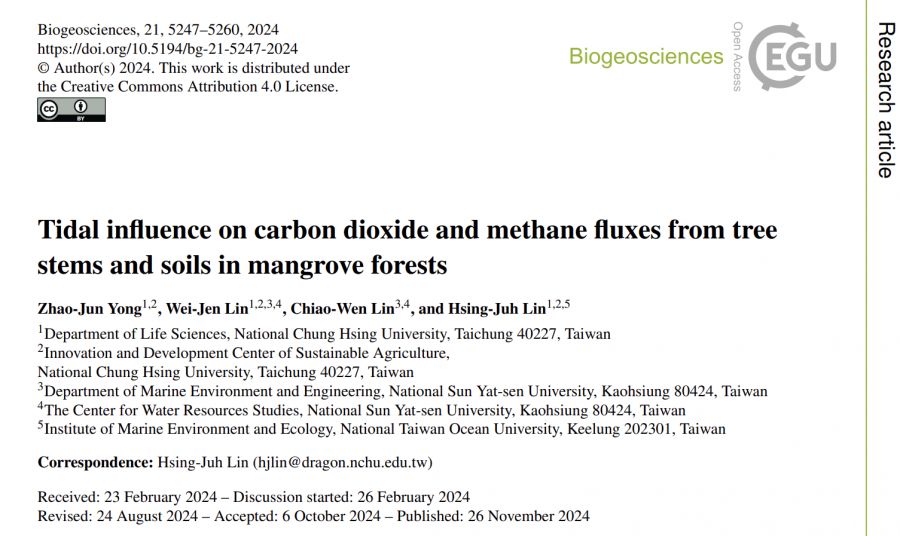| 論文篇名 | 英文:Controllable luminescence of a Li–Al layered double hydroxide used as a sensor for reversible sensing of carbonate 中文:Li-Al層狀雙氫氧化物的可控發光用作碳酸鹽的可逆傳感傳感器 |
| 期刊名稱 | Journal of Materials Chemistry C |
| 發表年份,卷數,起迄頁數 | 2019, 7(63), pages 11191-11206 |
| 作者 | Song-Hui Huang, Sheng-Jie Liu and Jun-Yen Uan(汪俊延)★ (corresponding author) |
| DOI | 10.1039/C9TC00870E |
| 中文摘要 | 這項研究發現,沒有插層生色團和稀土摻雜劑的Li-Al層狀雙氫氧化物(Li-Al-CO3 LDH)可以用作具有可控發光特性的發光材料。只需在高溫下煅燒Li–Al–CO3 LDH,即可將LDH的發光調整為紫外線(UV),藍色或紅色。在300°C下煅燒的LDH發出強烈的藍色發光,其藍色發射強度是Li–Al–CO3 LDH的五倍。通過27Al魔角旋轉核磁共振(MAS NMR)光譜研究了Li–Al–CO3 LDH和300°C煅燒的LDH。強藍色發射的發光機理主要與300°C煅燒的LDH中的氧缺陷和五面體配位的AlO5位有關。傅里葉變換紅外光譜(FT-IR)是一種通用技術,可識別LDH材料的發光強度。這是因為LDH材料的藍色發射強度與LDH中ν3模式CO32-吸附帶的FTIR強度之間存在負相關關係。探索了300°C煅燒的LDH材料的功能應用,發現它是一種有效的發光陰離子傳感器,可響應水溶液中的CO32-陰離子。選擇性檢測CO32-陰離子的濃度範圍從0到2500 ppm。 300°C煅燒的LDH表現出對CO32-的有效可逆傳感。 LDH還可以用於在後處理熱處理過程中檢測爐溫。 |
| 英文摘要 | This investigation finds that a Li–Al layered double hydroxide (Li–Al–CO3 LDH) that has no intercalated chromophore and no rare earth dopant could function as a luminescent material with controllable luminescence properties. The luminescence of the LDH can be tuned to ultraviolet (UV), blue or red simply by calcining the Li–Al–CO3 LDH at high temperatures. The LDH calcined at 300 °C emitted strong blue luminescence with its blue emission intensity five times higher than that of the Li–Al–CO3 LDH. The Li–Al–CO3 LDH and the 300 °C-calcined LDH were investigated by 27Al magic angle spinning nuclear magnetic resonance (MAS NMR) spectroscopy. The luminescence mechanism of the strong blue emission is mainly associated with the oxygen defects and pentahedrally-coordinated AlO5 sites in the 300 °C-calcined LDH. Fourier-transform infrared spectroscopy (FT-IR) is a versatile technique to recognize the luminescence intensity of an LDH material. It is because there is a negative relationship between the blue emission intensity from an LDH material and the FTIR intensity of the ν3 mode CO32− adsorption band in the LDH. The functional application of the 300 °C-calcined LDH material was explored and it was found to be an effective luminescent anion sensor that responds to CO32− anions in aqueous solution. The selective sensing of CO32− anions extends over a wide range of concentrations from 0 to 2500 ppm. The 300 °C-calcined LDH exhibits effective reversible sensing of CO32−. The LDH can also be used to detect the furnace temperature during post-processing heat treatment. |
Controllable luminescence of a Li–Al layered double hydroxide used as a sensor for reversible sensing of carbonate 2019-09-28

設施農業:綠能設施開發【材料系汪俊延教授】


